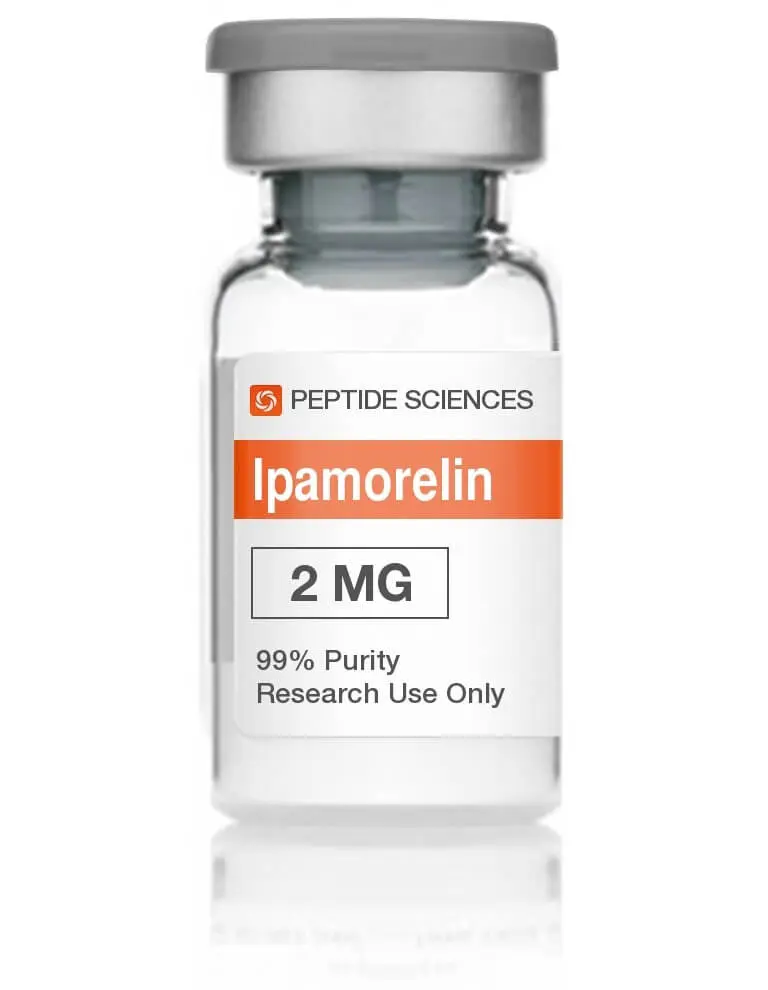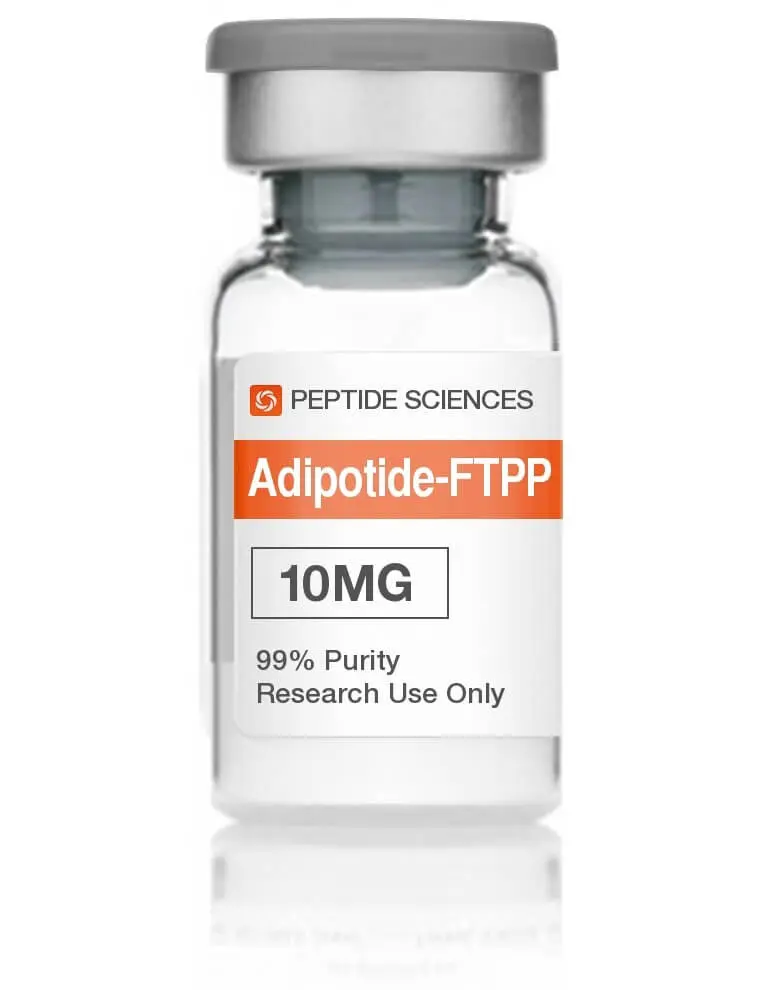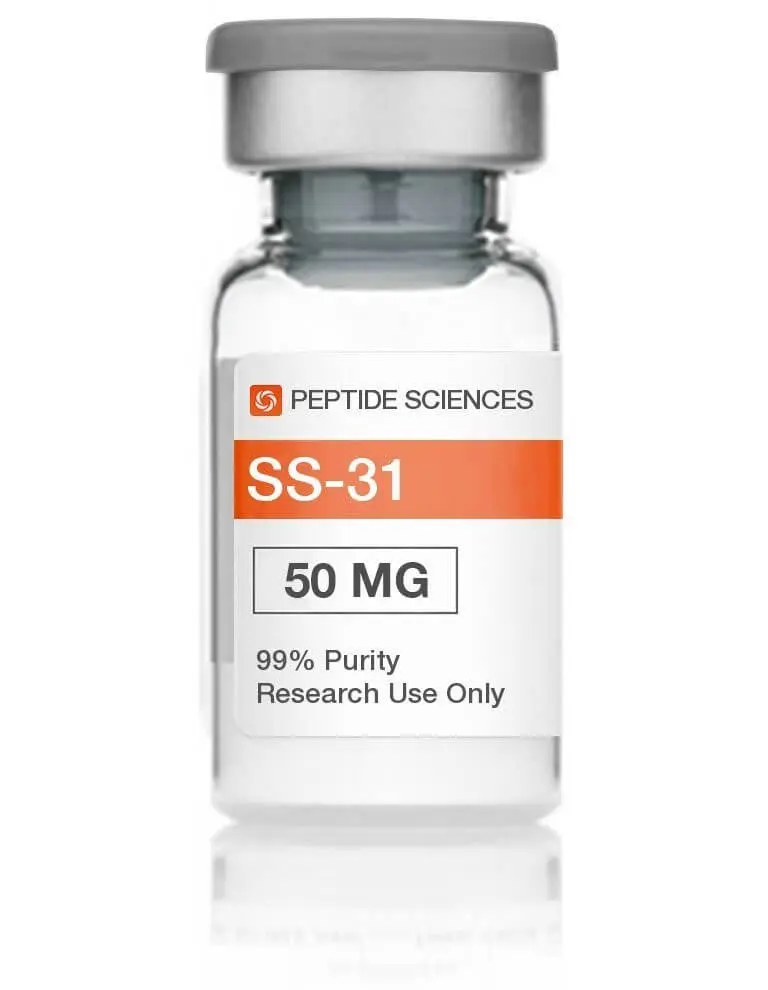Ipamorelin for Sale Order Now Ipamorelin 2mg Estimated Reading Time: < 1 min read


Ipamorelin for Sale Order Now Ipamorelin 2mg Estimated Reading Time: < 1 min read

Adipotide (FTPP) 10mg for Sale Order Now Adipotide (FTPP) 10mg Estimated Reading Time: < 1 min read

SS-31 50mg for Sale Order Now SS-31 50mg Estimated Reading Time: < 1 min read

For those in the scientific and research communities seeking detailed information on Peptide Sciences, our peptide sciences full review offers an extensive evaluation of their peptide synthesis services, product quality, and customer support. Dive into our thorough analysis to understand how Peptide Sciences stands out in peptide research and development. Estimated Reading Time: < 1 […]

Peptide-based anti-arthritis agents are a type of therapeutic treatment that use peptides to target and modulate the immune response in arthritis. These agents can be categorized as inhibitors, agonists, or vaccines. They work by blocking specific molecules or pathways involved in inflammation, stimulating receptors for anti-inflammatory responses, or inducing an immune response against arthritis-associated antigens. Peptide-based agents target key mediators of inflammation and pain, inhibiting pro-inflammatory cytokines and promoting anti-inflammatory molecules. Compared to traditional treatments, peptide-based agents have a more targeted approach and potentially fewer systemic side effects.

Narcolepsy is a chronic sleep disorder characterized by excessive daytime sleepiness and disrupted nighttime sleep. It can significantly impact daily life and treatment options are essential. Traditional treatments include stimulant medications and antidepressants, but they may not be effective for everyone. Researchers are exploring peptide-based anti-narcolepsy agents, which target specific receptors in the brain to promote wakefulness. These agents mimic or enhance the activity of hypocretin, a neuropeptide involved in regulating sleep-wake cycles. This newer class of medications offers an alternative approach for managing narcolepsy symptoms.

Peptide-based anti-eczema agents are a promising and novel approach to treating eczema. Eczema is a chronic inflammatory skin condition that affects millions of people worldwide, characterized by red, itchy, and inflamed skin patches. Peptides, short chains of amino acids, target specific molecular pathways involved in the development and progression of eczema. These agents have shown efficacy in reducing inflammation, relieving itching, improving skin barrier function, and promoting skin healing. Traditional treatments for eczema, such as topical corticosteroids, have limitations and side effects. Effective treatment options are essential for managing this chronic condition.

This article provides an overview of peptide-based anti-lung disease agents. Peptides are short chains of amino acids that target specific pathways in the lungs to regulate inflammation, immune response, and tissue repair. They offer advantages such as high specificity and low toxicity. Lung diseases like asthma and COPD can be treated with inhalers and corticosteroids, but peptide-based agents have the potential to provide targeted therapy with fewer side effects. These agents work by inhibiting inflammatory mediators or modulating immune responses. Overall, peptide-based agents show promise for improving symptom control and disease outcomes in lung diseases.

This article provides an overview of peptide-based agents for treating urinary tract infections (UTIs). It discusses how these agents work, their effectiveness compared to traditional UTI treatments, and potential advantages. UTIs are infections in the urinary system caused by bacteria. Common symptoms include frequent urination, burning sensation during urination, and pelvic pain. Traditional treatments involve antibiotics that target the specific bacteria causing the infection. Peptide-based agents offer an alternative approach to managing UTIs and may have potential benefits in terms of efficacy and reduced antibiotic resistance.

Peptide-based agents are a promising class of medications for treating gastrointestinal disorders. Derived from peptides, these agents can regulate digestion, inflammation, and immune responses in the gastrointestinal tract. They work by targeting specific receptors or enzymes involved in disease pathways, modulating their activity to restore normal function. Peptide-based agents can be administered through various routes and may be used alone or in combination with other treatments. They exert their therapeutic effects through mechanisms such as receptor modulation and enzyme inhibition. The development and use of these agents represent an exciting area of research in gastroenterology.

This article provides an overview of peptide-based agents in the treatment of skin diseases. Peptides are short chains of amino acids that have emerged as promising therapeutic options for managing skin conditions. They offer advantages such as high specificity, low toxicity, and customization potential. Peptides play a crucial role in maintaining skin health by regulating cellular processes like inflammation and wound healing. Peptide-based agents work through mechanisms such as inhibiting inflammatory pathways and promoting wound healing. These agents show promise in treating conditions like eczema, psoriasis, acne, and rosacea.

This article provides an overview of peptide-based anti-hyperthyroidism agents. Hyperthyroidism is a condition characterized by the overproduction of thyroid hormones, leading to an accelerated metabolism and various symptoms. Peptide-based agents are emerging as potential therapeutic options due to their ability to specifically target and regulate thyroid hormone levels. The article discusses the role of these agents in treating hyperthyroidism, exploring their mechanisms of action, effectiveness, and advantages compared to traditional treatments. Peptide-based agents offer a targeted approach compared to medications like beta-blockers and radioactive iodine therapy.

This article provides an overview of peptide-based anti-smoking agents and their role in treating smoking addiction. These agents target specific receptors in the brain to reduce nicotine cravings and withdrawal symptoms by modulating neurotransmitter activity in the reward pathway. Unlike traditional treatments, peptide-based agents directly address the underlying mechanisms of addiction. Commonly used agents include cytisine and naltrexone, which have shown promising results in clinical trials. Peptide-based anti-smoking agents offer a new approach to quitting smoking and are an exciting area of research for future treatments.

This article provides an overview of peptide-based anti-epileptic agents, which offer a new approach to treating epilepsy. These agents target specific molecular pathways involved in seizure generation and propagation, aiming to control seizures more effectively with fewer side effects compared to traditional drugs. One example of a peptide-based agent is cannabidiol (CBD), which acts on cannabinoid receptors in the brain to reduce neuronal excitability and dampen seizure activity. Peptide-based agents exert their effects through mechanisms such as modulating neurotransmitter release and enhancing inhibitory signaling. Overall, these agents have the potential to provide more effective seizure control for patients with epilepsy.

Peptide-based agents have emerged as a promising treatment option for multiple sclerosis (MS) due to their ability to modulate the immune response and reduce inflammation. These small protein fragments can mimic or block specific molecules involved in immune cell signaling pathways, allowing them to regulate the activity of immune cells and prevent them from attacking the central nervous system. By specifically targeting pathogenic immune responses, peptide-based agents offer a more targeted approach compared to traditional MS treatments, potentially achieving better outcomes while minimizing side effects associated with non-specific immunosuppression.

This article introduces peptide-based anti-hair loss agents as a promising treatment option for hair loss. Hair loss can be caused by genetics, hormonal imbalances, medical conditions, and environmental factors. Peptide-based agents target specific mechanisms involved in hair loss and promote the regeneration of hair follicles. Traditional treatments for hair loss include topical medications like minoxidil and finasteride.

Peptide-based agents are emerging as a promising strategy for treating drug-resistant diseases. These short chains of amino acids can be designed to target specific pathogens or cells involved in drug resistance, inhibiting their growth and survival. Peptides offer advantages over traditional treatments, such as easy synthesis and modification, reducing off-target effects and damage to healthy tissues. They also have a lower likelihood of inducing resistance compared to conventional drugs. Peptide-based agents have shown efficacy against various drug-resistant pathogens and cancers in preclinical and clinical studies, offering a novel approach to managing drug resistance. Further research is needed to explore their full potential.

Peptide-based agents are a promising class of drugs for treating HIV. Unlike traditional therapies, these agents interfere with different stages of the virus’s life cycle by targeting essential viral proteins or host cell receptors. They work by inhibiting viral entry into cells, disrupting replication, or preventing the assembly and release of new virus particles. Peptide-based agents offer a novel approach to managing HIV infection and addressing the limitations of current treatments. They exert their effects through mechanisms such as viral entry inhibition and reverse transcriptase inhibition.

Peptide-based agents show promise in treating obesity by targeting pathways involved in appetite regulation, metabolism, and fat storage. These agents aim to reduce food intake, increase energy expenditure, and promote weight loss. Traditional weight loss approaches often have limited success, necessitating more effective treatments that address the complex mechanisms of obesity. Peptide-based agents work through mechanisms such as regulating appetite and enhancing satiety, as well as influencing metabolic rate through thermogenesis and lipid metabolism. Overall, these agents offer potential for addressing the global health concern of excessive body weight.

Peptide-based agents have emerged as a promising approach in the treatment of epilepsy, offering a potential alternative to traditional antiepileptic drugs (AEDs). These agents are designed to target specific molecular pathways involved in seizure activity by modulating key signaling pathways and regulating neuronal excitability. Examples of peptide-based agents include brivaracetam and lacosamide, which work by reducing neurotransmitter release and stabilizing neuronal membranes, respectively. Early research has shown promising results in reducing seizure frequency and improving overall seizure control. Peptide-based agents may also offer advantages such as improved tolerability and reduced side effects compared to traditional AEDs.

This article provides an overview of the use of peptide-based agents in treating contact diseases. Peptide-based agents are therapeutic compounds composed of short chains of amino acids that target and disrupt pathogens responsible for infection. They offer a potential alternative to traditional treatments for contact diseases, such as antibiotics or antiviral drugs. These agents have a broader spectrum of activity against various pathogens and a lower risk of resistance development. Additionally, some peptide-based agents have immune-modulating properties that enhance the body’s natural defense mechanisms against these diseases.

Peptide-based agents are a promising approach for treating hormonal disorders. They can regulate hormone levels by interacting with specific receptors or enzymes involved in hormone production, secretion, or metabolism. These agents can mimic the actions of hormones or block their effects, modulating hormone signaling pathways to restore normal physiological functions. Peptide-based agents offer a targeted and precise treatment option for hormonal disorders by directly influencing hormone levels and alleviating associated symptoms. They work through receptor binding or enzyme inhibition mechanisms to bring about changes in hormone production or action.

This article provides an overview of the use of peptide-based agents in managing zoonotic diseases, highlighting their potential advantages compared to traditional treatments. Peptide-based agents are short chains of amino acids that can be designed to specifically target pathogens or modulate immune responses. These agents have the ability to inhibit pathogen growth, enhance immune cell activation, and promote antimicrobial molecule production. Compared to traditional treatments like antibiotics or antiviral drugs, peptide-based agents offer a comprehensive approach with broad-spectrum activity against multiple zoonotic pathogens.

This article provides an overview of the use of peptide-based agents in treating neurodegenerative diseases. It explains that neurodegenerative diseases are characterized by the loss of neurons and discusses how peptide-based agents can target specific molecular pathways involved in neurodegeneration. The article explores the mechanisms of action of these agents, including their ability to inhibit protein misfolding and aggregation, modulate oxidative stress, and suppress inflammation. It also discusses the comparative effectiveness of peptide-based agents compared to traditional treatments, as well as their potential benefits and challenges in development and implementation.

Peptide-based anti-herpes agents are therapeutic agents composed of short chains of amino acids that can target and inhibit viral infections. These agents offer a promising alternative to traditional treatments for herpes by directly interfering with the replication and spread of the herpes simplex virus. Existing antiviral drugs for herpes have limitations in terms of efficacy and safety, and drug resistance has been reported. Peptide-based agents exert their antiviral effects by targeting specific steps in the replication cycle of the virus, effectively inhibiting viral replication and reducing the spread of infection.

Peptide-based agents have shown promise in managing dermatological disorders by targeting specific molecular pathways involved in skin conditions. Unlike traditional treatments, peptides can selectively interact with receptors or enzymes implicated in the pathogenesis of skin disorders, leading to more precise and potentially more effective treatment outcomes. Peptide-based agents also tend to have favorable safety profiles, as they are naturally occurring compounds found in the body and are generally well-tolerated. Understanding the mechanisms of action of peptide-based agents can help improve management strategies in dermatology.

Peptide-based anti-bacterial agents are a promising class of compounds that offer an alternative treatment for bacterial infections. Derived from naturally occurring peptides or designed de novo, these agents have unique characteristics that make them effective against bacteria. They can target specific bacteria, penetrate biofilms, and have a broad spectrum of activity. Peptide-based agents also exhibit low levels of resistance development compared to traditional antibiotics. Their mechanisms of action include disrupting bacterial cell membranes, inhibiting essential enzymes, and interfering with bacterial signaling pathways. Overall, peptide-based anti-bacterial agents show great potential for further development and clinical use in the fight against antibiotic resistance.

Muscular dystrophy is a group of genetic disorders that lead to progressive muscle weakness and degeneration. Currently, there is no cure for muscular dystrophy, but peptide-based agents have emerged as potential therapeutic options. These agents target specific molecular pathways involved in muscle weakness and loss, aiming to slow down or halt disease progression. Studies have shown promising results in preclinical models, demonstrating the ability to enhance muscle regeneration, reduce inflammation, and improve overall muscle function. Peptide-based therapies may offer advantages over traditional treatments due to their targeted delivery mechanisms and reduced side effects. Further research is needed to optimize their effectiveness.

Peptide-based anti-stress agents have emerged as a promising approach to help individuals cope with stress more effectively. These agents work by targeting specific receptors or pathways involved in the regulation of stress hormones, neurotransmitters, and neuroplasticity processes. The development of peptide-based anti-stress agents has been driven by advances in understanding the neurobiology of stress and the role of peptides in regulating stress response pathways. Researchers have identified specific peptides that show promise in reducing anxiety, improving mood, and enhancing cognitive function. Peptide-based anti-stress agents offer a novel approach to managing stress and are an area of interest for further research and development.

Peptide-based anti-lupus agents work by targeting and regulating the immune response in lupus. They can inhibit autoantibodies and modulate T-cell responses to reduce inflammation and tissue damage. These agents offer advantages over conventional treatments, such as their specificity in targeting specific components of the immune system. Peptides can be designed to selectively bind to autoantibodies or activate regulatory T-cells, providing a more targeted approach compared to traditional medications. Overall, peptide-based anti-lupus agents aim to restore immune tolerance and alleviate symptoms associated with lupus.